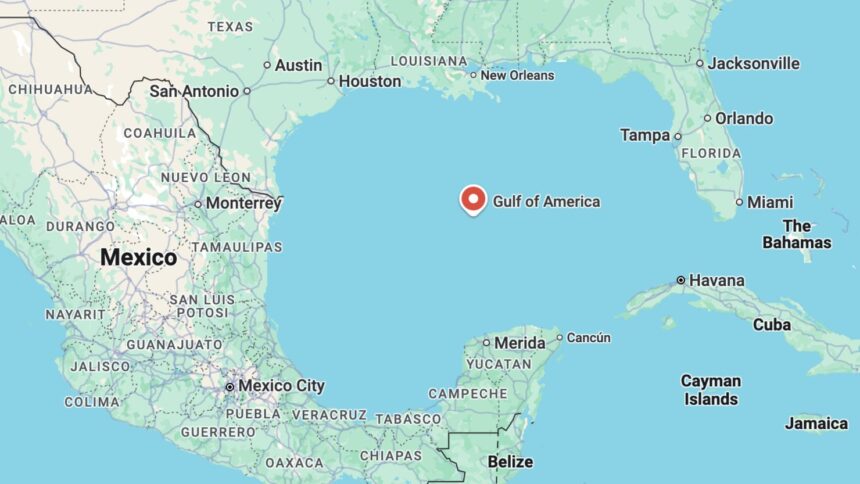A territorial dispute over a name has moved from trivial to troublesome. It’s become a significant issue involving Google, Mexico, and the US. Mexican President Claudia Sheinbaum has taken legal action against Google for renaming the Gulf of Mexico to the Gulf of America in US maps.
What’s Happening & Why This Matters
This issue arose when the Trump administration ordered the name change of the Gulf of Mexico on US maps. Under the new decree, Google changed its maps, showing the entire Gulf as the Gulf of America for US-based users. This didn’t sit well with Mexico, as the name change also affected the part of the Gulf that lies within its borders.

Sheinbaum expressed frustration, asserting that the US could only rename the part of the Gulf that belongs to it, leaving the rest, including the Mexican and Cuban portions, intact. In response, Mexico is suing Google to revert the name for the sections under Mexican control. This conflict has broader implications, affecting how global tech companies like Google align with international governance and territorial disputes.
The dispute highlights a deeper issue: how geopolitical issues influence the world of tech companies and global platforms. When Google complies with national regulations, it can create tension with other countries. The outcome of this case could shape how companies address global naming conventions in the future.
TF Summary: What’s Next
The legal battle between Mexico and Google over map names will unfurl in the coming months. The international implications may set how global tech organizations interact with national policies. The results may create a tidal wave regarding local laws and territorial disputes in the future.
— Text-to-Speech (TTS) provided by gspeech


